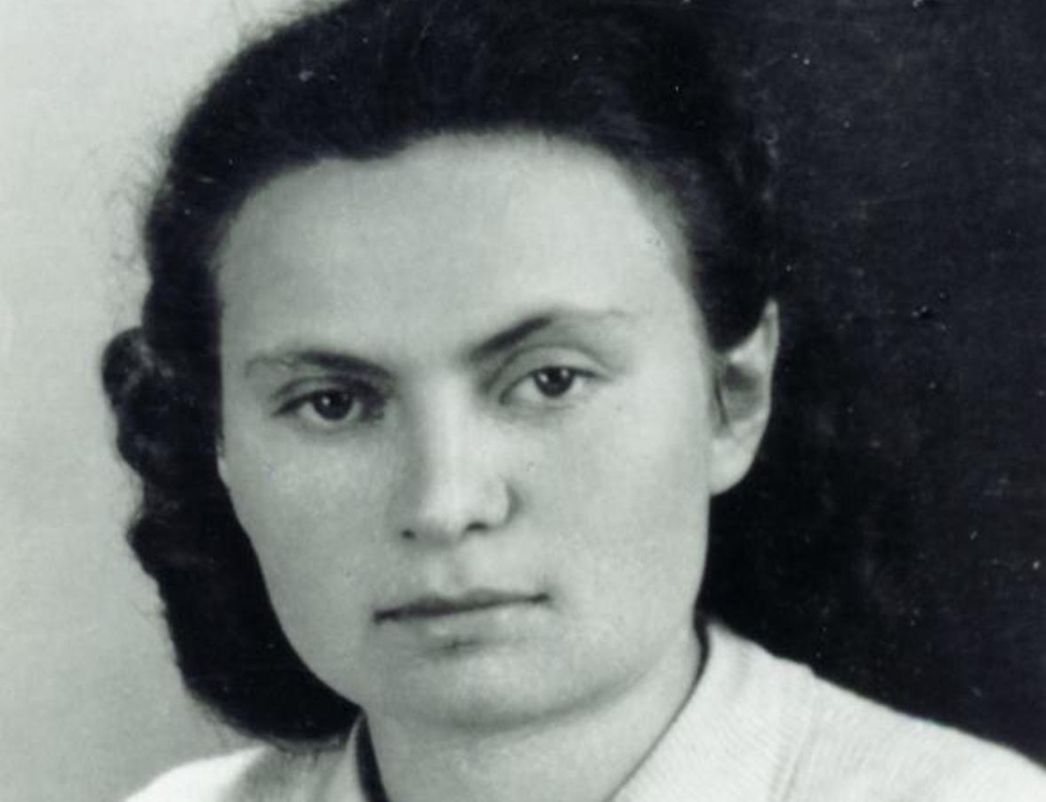Transcript
Narrator Her childhood ended when the Wehrmacht invaded Poland on 1 September 1939. The German occupiers persecuted the Polish Jews from the first day onward, and after just a few months set up ghettos where the Jewish population was crowded together and isolated. Felicja Schächter was a schoolgirl of twelve. Like all Jewish residents, she would have been required to wear an armband. However, her family fled Cracow. They tried to go into hiding, but could not find shelter anywhere. Ultimately they returned to the city. Felicja secretly entered the ghetto, where 15,000 people occupied flats in which formerly 3,000 had resided. The deportation of the residents to extermination camps began in 1942. Felicja was fifteen and, as such, was among those not murdered immediately. The SS took her to the neighbouring Płaszów concentration camp, and a short time later to the Skarżysko-Kamienna Jewish forced labour camp belonging to the Hasag armament company of Leipzig. The Hasag made common cause with the SS and kept the Jewish forced labourers even after the entire factory was moved to the parent company in Leipzig and became a concentration camp. Buchenwald’s largest women’s subcamp was thus established in the Leipzig district of Schönefeld. The inmates were put to work in grenade production. Felicja recalled:
Felicja Karay “The German rulers took everything away from us: freedom, youth, our femininity, our beauty …, even our pathetic clothing. Day after day, we marched to work in the factories in wooden clogs and ugly grey striped smocks, usually with shaved heads: slave workers in the German armament industry. We had to stand for roll call for hours in the mud and cold. At night we were bitten by lice, during the daytime by the oil of the machines. We had to work eight, ten, even twelve hours in day and night shifts. In the factories, the SS spread the rumour that we were thieves and prostitutes.
Half-dead, we stood in queue for the daily turnip soup. Every master, every overseer could beat us any time they pleased, or order that our heads be shaved.”
Narrator The camp administration paid no attention to what the women did in their leisure time. They had a certain amount of freedom, of which Felicja also made active use:
Felicja Karay “We didn’t have any guns or hand grenades to carry out a revolt. Our resistance was different: in every camp, in every national group, the women organized mutual help and cultivated their cultures. We sang together, held literary evenings – sometimes bringing forth entirely new poetesses – or contests for who could write the best satire on the evil block senior.”
Narrator In early April, the SS cleared the camp and forced the women to set out on foot. Felicja was liberated by American soldiers near Torgau. She emigrated to Israel in 1950, studied history, and worked as a high school teacher in the Rishon LeZion Kibbutz. At the age of nearly sixty, she began devoting herself to the scholarly study of the history of the Skarżysko-Kamienna Jewish forced labour camp. She earned her doctorate and published on the subject. In 2002 she edited a collection of poems from the Leipzig women’s subcamp.


